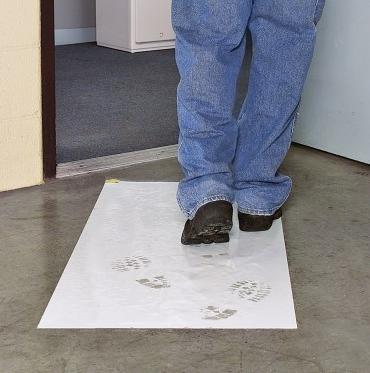 I've known a lot of doormats in my life (including myself at times)-- not just the objects that you walk on before entering a door, but human ones . . . people who will lay down and follow commands without question as soon as a person with a tougher looking bite beings to bark.
I've known a lot of doormats in my life (including myself at times)-- not just the objects that you walk on before entering a door, but human ones . . . people who will lay down and follow commands without question as soon as a person with a tougher looking bite beings to bark.
And, when I inquire of this folks as to why, what they most often tell me is that their decisions are determined by religious reasons. For many Christians, these religious reasons go back to the words of Jesus in the Sermon on the Mount.
What did Jesus really mean when he said "blessed are the peacemakers" and "go the extra mile" or "turn the other cheek?"
I've had these texts on my mind a lot because of my recent peace making travels to Israel and also because of the lectionary readings for the past several weeks.
I've learned through my Muslim and Jewish friends that these words are among those whom they respect Jesus the most for, even if they disagree with him on other points. I've learned through listening carefully to everyday conversations how much these particular words are a part of our everyday vernacular: we use them all the time and don't even realize it!
"What would Jesus do if you are slapped by a friend? Turn the other cheek, of course!"
Yet, like many texts, I fear, when they are read out of context, bad things can happen. Bad things, especially for women: the acceptance of what no one should ever experience-- willfully allowing others to walk all over them for the sake of being called "a good Christian."
This begs us to ask the questions: is Jesus encouraging us to remain in abusive relationships? Is Jesus encouraging us to have our dignity stripped away? Is Jesus encouraging us to become less human in order to keep the peace?
I think not. This explanation says it best:
At the time of Jesus, striking someone deemed to be of a lower class with the back of the hand was used to assert authority and dominance. If the persecuted person "turned the other cheek," the discipliner was faced with a dilemma. The left hand was used for unclean purposes, so a back-hand strike on the opposite cheek would not be performed. The other alternative would be a slap with the open hand as a challenge or to punch the person, but this was seen as a statement of equality. Thus, by turning the other cheek the persecuted was in effect demanding equality.
Yet, there seems to be a nagging sense in the undercurrent of Christian culture that to be "at peace with everyone" (as Paul describes later in his words to the Christian communities)-- truly does involve giving in to untruths, taking a back seat to those who seek to oppress, and letting loved ones take advantage of you as if love=let you hurt me again and again.
My sisters, my brothers, we have to stop accepting this as "right" in the way of Jesus and we as leaders have to stop modeling it in our churches.
One of the most powerful lectures I experienced while in seminary came from Dr. Esther Ascolatse. Our class discussion that Monday afternoon centered around what is the purpose of salvation and Dr. Ascolatse's answer for us culminated in what means to be human. I was shocked, you know. Why wouldn't she give us salvation formulas or talking points about theories of atonement (the nerdy things seminary students debate)? No, she was insistent to teach how the redemption Christ brought gave us all the opportunity to become the people-- the humans-- God intentionally created us to be. Salvation always would be about wholeness.
Christ's empowerment in these words fulfills some other famous text of Jesus: "do unto others as you would have them do unto you." Our gospel calling continues to be then, how to be both respectful of those in authority positions over us, but always unashamedly insistent on our humanity being acknowledged too.
It's a scary and a bit more challenging to "turn the other cheek" and to "be a peacemaker" in this way-- for we can't accept things as they are. We can't avoid conflict. We don't lay down limply. Rather, we are charged by Christ to participate in justice for ourselves as much as we do for others.
Maybe my Christian brothers and sisters, our homes, our churches, our workplaces don't need any doormats. Instead maybe what we need more of are talking, walking, thinking, reflecting, engaging communities where conflicts aren't solved by the powerful winning but rather, where the truth is told and love is shared on both sides.